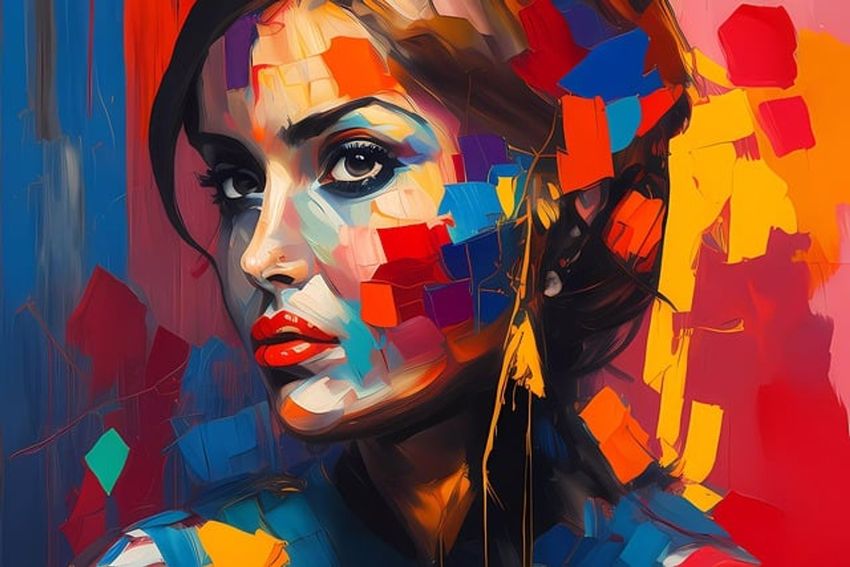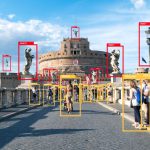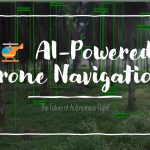Artificial Intelligence (AI) is revolutionizing the world of art, allowing machines to create stunning, thought-provoking pieces. AI-generated art blends technology and creativity, using deep learning and advanced algorithms to produce unique digital artwork. But how does it all work? What tools power AI art? Let’s dive into the fascinating world of AI-generated art and explore the techniques behind it.
1. How AI-Generated Art Works 🧠🎭
AI-generated art is created using machine learning models trained on vast datasets of paintings, drawings, and photographs. The AI learns patterns, styles, and techniques from existing artwork and then generates new, unique pieces based on this knowledge.
There are three main approaches to AI-generated art:
🔹 Generative Adversarial Networks (GANs)
GANs consist of two neural networks:
✅ Generator – Creates new images.
✅ Discriminator – Evaluates and refines images for realism.
🎨 Example: DeepArt & Artbreeder use GANs to create unique, realistic digital artwork.
🔹 Neural Style Transfer (NST)
NST applies the style of one image to another using deep learning. It separates content and style, merging them to create an artistic transformation.
🎨 Example: Apps like Deep Dream Generator & Prisma allow users to turn photos into artwork inspired by Van Gogh or Picasso.
🔹 Diffusion Models
Diffusion models start with random noise and refine it step by step to generate high-quality images. These models are behind the most advanced AI art tools today.
🎨 Example: DALL·E, MidJourney, and Stable Diffusion use diffusion techniques to generate incredibly detailed AI art.
2. Tools & Software for AI Art 🖥️🎨
AI-powered art tools have made it easier for anyone to create professional-quality artwork. Here are some of the most popular tools:
🌟 AI Art Generators
🖌️ DALL·E 2 – OpenAI’s model generates surreal and highly detailed AI artwork.
🖌️ MidJourney – Known for creating dream-like, cinematic AI art.
🖌️ Stable Diffusion – Open-source AI art tool offering full customization.
🖌️ Deep Dream by Google – Uses neural networks to create trippy, surreal images.
🖼️ AI-Enhanced Design Tools
📷 Runway ML – A powerful AI tool for video editing and animation.
🎭 Artbreeder – Uses GANs to blend and evolve images into new artwork.
🖍️ DeepArt.io – Applies classic painting styles to digital images.
🎨 Fotor GoArt – Turns photos into AI-generated paintings.
🖋️ AI Drawing & Sketching Tools
✏️ AutoDraw by Google – AI-assisted sketching for quick doodles.
🎨 Sketch-RNN – AI-powered drawing assistant for artists.
🖌️ Clip Studio Paint AI Assist – Helps artists refine digital sketches with AI support.
These tools allow artists, designers, and even beginners to experiment with AI and push creative boundaries.
3. The Role of AI in Different Art Styles 🎭🎨
AI is not just limited to traditional paintings—it can create art in various styles, including:
🎨 Abstract Art – AI generates unpredictable, surreal visuals.
🖼️ Portraits – AI can create realistic or stylized human faces.
📸 Photography & Photo Editing – AI enhances images, applies filters, and removes objects.
🕹️ 3D & Game Art – AI creates textures, environments, and even characters for video games.
📚 Illustration & Comic Art – AI assists in generating detailed illustrations and comics.
For example, AI-powered manga generators can create anime-style characters, while 3D AI models help game developers design characters faster.
4. The Debate: Is AI-Generated Art Real Art? 🎭🤔
The rise of AI art has sparked debates in the creative world. Some argue that art requires human emotion and intent, while others believe that AI is just another tool, like a paintbrush or a camera.
🔥 Arguments in Favor of AI Art:
✅ Expands Creativity – AI helps artists explore new styles and techniques.
✅ Democratizes Art – Anyone can create art, regardless of skill level.
✅ Enhances Productivity – AI speeds up the creative process.
⚠️ Controversies & Challenges:
❌ Lack of Originality – AI learns from existing artworks, raising copyright concerns.
❌ Job Displacement – Some fear AI will replace human artists.
❌ Bias in AI Models – AI-generated art may reflect biases present in its training data.
Despite these challenges, AI is being embraced as a tool rather than a replacement for human creativity.
5. The Future of AI-Generated Art 🚀🖌️
The future of AI art is exciting, with new possibilities emerging every day:
🔮 AI & Human Collaboration – Artists and AI working together to co-create masterpieces.
🖌️ Interactive & Adaptive Art – AI-generated art that responds to emotions and surroundings.
🎥 AI in Film & Animation – AI-generated animations and deepfake-style cinematics.
🖼️ NFTs & AI Art – AI-created digital art being sold as NFTs (Non-Fungible Tokens).
With advancements in AI, art will continue to evolve, blending human imagination with machine intelligence.
Conclusion 🏆🎨
AI-generated art is a game-changer in the creative world, offering endless possibilities for artists, designers, and digital creators. By leveraging deep learning, neural networks, and cutting-edge AI tools, anyone can create stunning artwork in seconds.
While AI art raises ethical and philosophical questions, it ultimately serves as a powerful tool for enhancing human creativity. The future of AI art is limitless, and as technology advances, we’ll continue to see even more innovative and mind-blowing creations!


